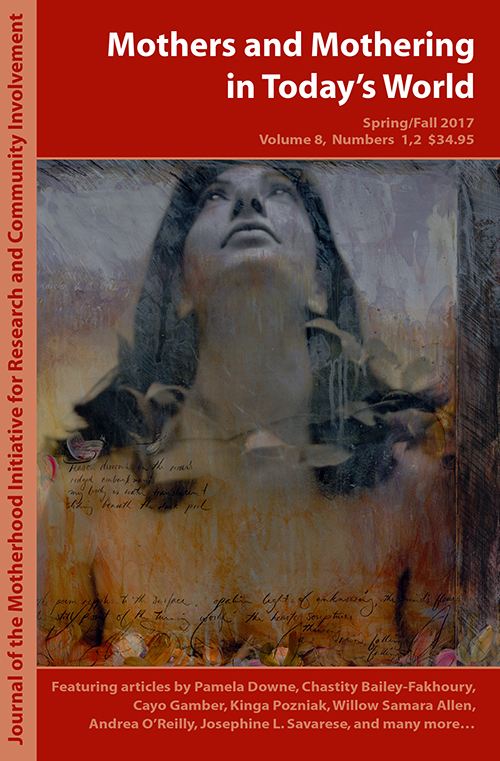Advance Forward Moms! A Paradigm for an Online Community of Working Mothers That Actually Works
Abstract
This article examines a particular Facebook group that aspires to empower and support working mothers, and, through a narrative and anecdotal approach, analyzes the discourse of the group. The struggles of working mothers in the Western world in general, and in Israel in particular, are ever-present. This article aims to show how in the face of these challenges, this group, through a mother-centred approach of empowerment and community, might be a paradigm for how social media not only reflects the lived experience of working mothers, but can also make changes in the way working mothers see themselves and in the way they face challenges in the personal and professional realms. The foundation of this Israeli Facebook group—called IMAKADIMA: Working and Career-Minded Moms in Israel—is that career and motherhood can and should coexist rather than being an overwhelming juggling act or compromise. At its core is the belief that a community of like-minded working mothers can provide practical and moral support in the areas of work-life balance, and equality in the home and workforce. This article examines various categories of interaction in this group—networking and assistance, work-mother balance, personal development, gender roles, and empowerment—to show that the dominant attitude of mutual encouragement and empowerment outweighs the negative aspects of social media groups.Downloads
How to Cite
Issue
Section
License
All intellectual property in relation to material included on this site belongs to the Motherhood Initiative for Research and Community Involvement (MIRCI). All material on this site is protected by Canadian and international copyright and other intellectual property laws. Users may not do anything which interferes with or breaches those laws or the intellectual property rights in the material. All materials on the Motherhood Initiative for Research and Community Involvement (MIRCI) are copyrighted and all rights are reserved. Any reproduction, modification, publication, transmission, transfer, sale, distribution, display or exploitation of the information, in any form or by any means, or its storage in a retrieval system, whether in whole or in part, without the express written permission of the Motherhood Initiative for Research and Community Involvement (MIRCI) is prohibited. Please contact us for permission to reproduce any of our materials. This site may include third party content which is subject to that third party's terms and conditions of use.


